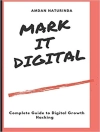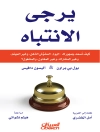This volume approaches marcomm (marketing communication) from the phenomenology of markets in the context of the Global South and its postcolonial experiences. It provides a fresh perspective to the current paradigm and offers a fresh discourse on the current theories of marketing communication. The book demonstrates how marketing communication, an essentially Global North discourse reinforcing hegemony, can be critiqued and deconstructed when subjected to postcolonial critical analysis. Recognizing as commonplace, the Global South has either willingly embraced or been ideologically coerced into adopting a Western marketing communication system. This system is evident in its theories and practices, mirroring Western themes, symbols, stories, and knowledge frameworks, consequently fostering subjectivities that lack critical self-reflection and are dependent on Western influences. But what remains more interesting is how such an ideological system, mediated through a quintessential Global South modernity, generates a new habitation of modernity at the margin. Essentially a reaction from the Global South perspective, the book thoroughly examines the realities around marketing communication discourses. The book even engenders alternatives to hegemonic marketing communication discourses and a set of “other” epistemologies of alternate modernities of equity and justice. From African to Turkish, from Indian to Canadian first nations, Australian Aborigines to Polynesian-American, postcolonial subjectivities through marcomm across the globe get a voice in the volume. The collection in this volume is a decolonizing attempt that thwarts cultural globalization, examines colonial discourses, cuts across essentialized identities, mobilizes resistance, interrogates power structures and mechanisms of knowledge production, dissemination, and legitimization, and celebrates the new-formed cultural identity of the Third/Fourth World. The book is essential read for researchers, students and practitioners of Marketing who wish to gain a deeper understanding of an oft ignored aspect of marcomm.
Tabella dei contenuti
Neocoloniality of Marketing Communications in the Global South.- A Caribbean Hauntology: Spectres in Wide Sargasso Sea.- Postcolonial Marketing Communication: An Indian Perspective.- Postcolonial Branding – From the Subcontinent.- Subaltern Agencies, Marketing Communications, and Counter Discourses in the Postcolony.- Cultural Appropriation or Transculturation: the curious resilience of ‘Tiki’ culture.- A Decolonizing Or Recolonizing Mindset? Semiotic Analysis Of A Qurban Donation Appeals To Africa In Turkey.- A post-socialist reading of displaced images from the Global South: the case of Roma, Eastern Europe’s oriental Other.- The Empire Bites Back: A Colonialist Confession.- Can there be an Afterword after words? Looking Back at the Volume.
Circa l’autore
Arindam Das is Professor of English and Ph D Program Director of Liberal Arts, as well as the Program Director of MA English Creative Writing at Alliance School of Liberal Arts, Alliance University, Bangalore. Dr. Das’s expertise spans diverse domains, including business communication, critical organizational studies, postcolonial literatures, culture studies, CCT, and creative writing. He had been an Australia India Council Fellow with 05 Australian Universities. He has published in journals like Journal of Postcolonial Writing, Consumption, Markets & Culture, Journal of Advertising, Journal of Consumer Affairs, among many. He has also co-edited a special Issue on the COVID-19 Pandemic for the Journal of Consumer Affairs and on Crisis Communication for Consumption, Markets & Culture. His current research projects focus on post/neo/decolonial discourses, critical media studies, marginalization, Asian ethnic culture studies.
Himadri Roy Chaudhuri is Professor of Marketing at XLRI, Jamshedpur, India. He holds a Ph D in Business Management from the University of Calcutta, and has more than 20 years’ academic experience in investigating culture consumption theory, critical marketing, public consumption and consumer happiness in the domain of marketing theory. His other research areas include theorizing consumer lived experience and subaltern consumption phenomenon, and he has published papers on public and conspicuous consumption respected international journals. He has published many papers in peer-reviewed international journals of repute. As of date, his papers are being published/accepted in such reputed outlets as Journal of Advertising Research, Gender, Work & Organization, Journal of Business Research, Journal of Homosexuality, European Journal of Marketing, Journal of Consumer Affairs, Journal of Public Policy & Marketing, Journal of Business Ethics, Journal of Macromarketing, Psychology & Marketing, Qualitative Marketing Research, and so on. His co-edited book ‘Marketization: Theory and Evidence from Emerging Economies’, with Prof. Russell Belk, was published by Springer in 2020. He has also co-edited a special issue on the COVID-19 Pandemic for the Journal of Consumer Affairs and on Crisis Communication for Consumption, Markets & Culture. His current research projects involve issues of marginalization, gender identity, rehumanization, and dirty work.
Ozlem Sandikci Turkdogan is Professor of Marketing at the University of Glasgow Adam Smith Business School. She received her MBA degree from Birmingham University and Ph D in Marketing degree from the Pennsylvania State University, USA. Previously, she worked at Bilkent University, Turkey. She was a visiting professor at York University, Schulich School of Business in Toronto, Canada and Faculty of Economics, University of Ljubljana, Slovenia. Her research addresses sociocultural dimensions of consumption and focuses on the relationship between globalization, marketing, and culture. Her work is published in the Journal of Marketing, Journal of Consumer Research, Journal of Business Research, Marketing Theory, Business History Review, and Fashion Theory, and several other journals and edited collections. She is the co-editor of the ‘Handbook of Islamic Marketing’ (2011) and ‘Islam, Marketing and Consumption: Critical Perspectives on the Intersections’ (2016). In 2003, she received the Franco Nicosia ACR Competitive Paper Award, in 2012 the Emerald Literati Network “Highly Commended Paper” Award, and in 2016 the Consumer Culture Theory Conference Best Special Session Award.












